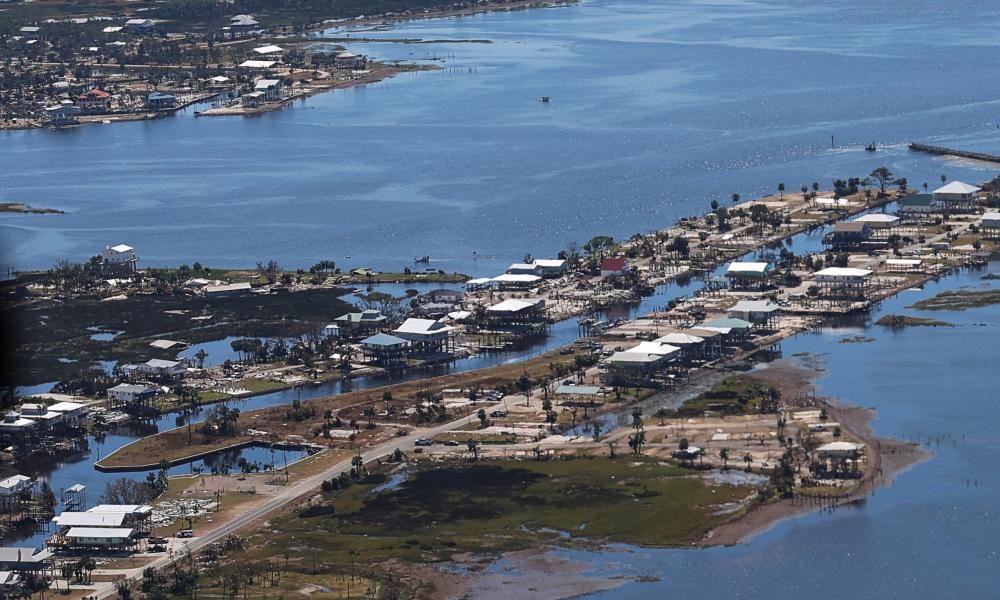On Saturday, the White House issued a strong statement to counter a surge of misinformation circulating online about Hurricane Helene, including outlandish conspiracy theories suggesting that government officials engineered the storm to facilitate corporate access to local lithium deposits. Officials condemned these claims, labeling them as disinformation propagated by “scam artists” and “bad-faith actors” seeking to exploit the chaotic situation for their political motives. The statement emphasized the danger posed by such falsehoods, particularly in the context of ongoing recovery efforts following the hurricane, stating that rumors about the misallocation of emergency funds and inadequate relief payouts were not only incorrect but hazardous. The government’s response highlighted the critical need for accurate information amid a disaster scenario exacerbated by severe political divisions.
In relation to the disaster’s aftermath, President Biden has urged Congress to replenish disaster relief funds, as the projected costs for recovery and rebuilding in the wake of Hurricane Helene could reach as high as $200 billion over the next decade. In a letter to congressional leaders, he acknowledged that while the Federal Emergency Management Agency (FEMA) and the Department of Defense have sufficient resources for immediate life-saving missions, additional funding would be necessary for longer-term recovery efforts. He expressed confidence that Congress would recognize the essential nature of these funding needs, particularly following significant damage across multiple states, including North Carolina, Florida, and Georgia.
During the escalating recovery efforts, Vice President Kamala Harris adjusted her campaign schedule to address the urgent needs in areas severely impacted by the storm, illustrating the administration’s commitment to supporting affected communities. President Biden has been actively involved in assessing the damage firsthand, underscoring the enormous financial implications of rebuilding efforts that are likely to require “billions of dollars.” Emphasizing the urgency of the situation, Biden stated that any delay in obtaining additional disaster relief funding could hinder recovery efforts, with public needs intensifying in the wake of the widespread destruction caused by Helene.
Reports following the hurricane indicate a grim toll, with at least 225 confirmed fatalities, and officials fear the death count may rise as recovery operations evolve. Additionally, about a million residents find themselves without power, and many families are struggling with the aftermath of the storm, including an increasing number of reported missing persons. Biden’s call for more funding is particularly urgent, as the Small Business Administration (SBA), which facilitates disaster relief loans for affected small business owners and homeowners, is projected to exhaust its funds imminently, complicating recovery for thousands who need assistance.
Despite FEMA’s ongoing relief efforts, the political context surrounding the funding for disaster recovery has become contentious. The need for immediate assistance is not only a matter of life and safety but also intertwined with political narratives as lawmakers prepare for upcoming elections. The situation has prompted political figures, such as Republican House Speaker Mike Johnson, to assert that the true extent of the disaster requires assessment post-election. Former President Trump has further fueled the controversy by alleging that disaster funds have been misused for housing migrants, claims the White House has categorically denied. These misrepresentations reflect broader political battles that impact essential disaster recovery efforts and public perception.
As the administration navigates the complex interplay of disaster response and political rhetoric, FEMA has actively addressed misinformation by issuing factual clarifications about fund allocations, reinforcing the narrative that no disaster response resources have been compromised. In just the first week following Hurricane Helene, FEMA has already distributed over $45 million to support impacted communities. In a landscape saturated with political maneuvering and misinformation, the clear communication of facts and the mobilization of disaster relief resources remain pivotal in the quest to support recovery efforts and restore normalcy for affected families and businesses.

